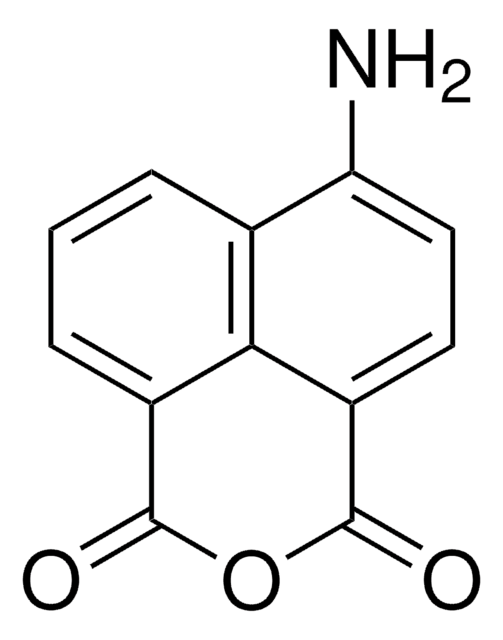246816
1,6-Hexanediol diacrylate
technical grade, 80%
Synonyme(s) :
Hexamethylene glycol diacrylate, Hexane-1,6-diyl diacrylate, HDODA
About This Item
Produits recommandés
Qualité
technical grade
Niveau de qualité
Densité de vapeur
>1 (vs air)
Pression de vapeur
<0.01 mmHg ( 20 °C)
Pureté
80%
Forme
liquid
Contient
100 ppm monomethyl ether hydroquinone as inhibitor
Indice de réfraction
n20/D 1.456 (lit.)
Densité
1.01 g/mL at 25 °C (lit.)
Chaîne SMILES
C=CC(=O)OCCCCCCOC(=O)C=C
InChI
1S/C12H18O4/c1-3-11(13)15-9-7-5-6-8-10-16-12(14)4-2/h3-4H,1-2,5-10H2
Clé InChI
FIHBHSQYSYVZQE-UHFFFAOYSA-N
Catégories apparentées
Description générale
Application
- A monomer for the synthesis of poly(1,6-hexanediol diacrylate) (PHDA)-based polymer microspheres and bifunctional microcapsules. The resulting PHDA-based polymer embedded with TiO2 nanoparticles finds uses in various potential applications in fields such as sensing, drug delivery, and photonics.
- A sensitizer in the UV-curable inks commonly used in the printing industry.
- A cross-linking agent in conjunction with a photocatalytic system to modify cellulose material. The resulting crosslinked cellulose material finds uses in various potential applications such as paper manufacturing, textiles, and biomedical devices.
- A monomer in the synthesis of polyurethane acrylate (PUA) which is used to produce polymer electrolytes for use in lithium batteries.
- A resin (copolymer of 1,6-hexanediol diacrylate and styrene) by suspension polymerization, which is applicable in the preparation of hydrophobic peptide sequences.
- Monodispersed poly(HDDA)/TiO2 microspheres, applicable in the degradation of methylene blue.
Mention d'avertissement
Warning
Mentions de danger
Conseils de prudence
Classification des risques
Aquatic Acute 1 - Aquatic Chronic 2 - Eye Irrit. 2 - Skin Irrit. 2 - Skin Sens. 1
Code de la classe de stockage
10 - Combustible liquids
Classe de danger pour l'eau (WGK)
WGK 2
Point d'éclair (°F)
235.4 °F - closed cup
Point d'éclair (°C)
113 °C - closed cup
Équipement de protection individuelle
Faceshields, Gloves, Goggles, type ABEK (EN14387) respirator filter
Faites votre choix parmi les versions les plus récentes :
Certificats d'analyse (COA)
Vous ne trouvez pas la bonne version ?
Si vous avez besoin d'une version particulière, vous pouvez rechercher un certificat spécifique par le numéro de lot.
Déjà en possession de ce produit ?
Retrouvez la documentation relative aux produits que vous avez récemment achetés dans la Bibliothèque de documents.
Les clients ont également consulté
Notre équipe de scientifiques dispose d'une expérience dans tous les secteurs de la recherche, notamment en sciences de la vie, science des matériaux, synthèse chimique, chromatographie, analyse et dans de nombreux autres domaines..
Contacter notre Service technique














